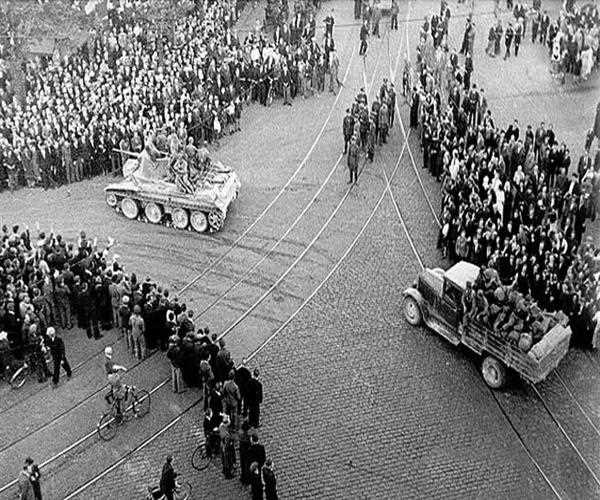The annexation of Latvia by the Soviet Union after World War II was a complex process that was driven by a number of factors.

- The Molotov–Ribbentrop Pact: In August 1939, the Soviet Union and Nazi Germany signed the Molotov–Ribbentrop Pact, which included a secret protocol that divided Eastern Europe into spheres of influence. Latvia was assigned to the Soviet sphere of influence, which meant that it was effectively under Soviet control even before the war began.
- The Soviet invasion of Latvia: On June 17, 1940, the Soviet Union invaded Latvia. The Latvian government was quickly overthrown, and the country was incorporated into the Soviet Union as the Latvian Soviet Socialist Republic.
- The rigged elections: In July 1940, the Soviet Union held rigged elections in Latvia. The only candidate on the ballot was the Communist Party, and the results were announced as a unanimous victory for the Communists.
- The deportations: In 1941, the Soviet Union deported tens of thousands of Latvians to Siberia. These deportations were intended to crush any potential resistance to Soviet rule.
- The German occupation: In June 1941, Germany invaded the Soviet Union, and Latvia was occupied by German forces. However, the German occupation was even more brutal than the Soviet occupation, and many Latvians were killed or deported to Germany.
- The return of Soviet rule: In 1944, the Soviet Union regained control of Latvia, and the country remained under Soviet rule until 1991.
The annexation of Latvia by the Soviet Union was a major turning point in Latvian history. It led to the loss of Latvian independence, the suppression of Latvian culture, and the deportation of thousands of Latvians. The annexation also had a profound impact on the Latvian people, and its legacy continues to be felt today.
In addition to the factors mentioned above, there were a number of other factors that contributed to the annexation of Latvia by the Soviet Union. These included the weakness of the Latvian government, the lack of international support for Latvia, and the fear of Nazi Germany.
The annexation of Latvia by the Soviet Union was a violation of international law. However, the Soviet Union was able to annex Latvia because it was a powerful country that was willing to use force to achieve its goals. The annexation of Latvia was a major setback for the Latvian people, but it also helped to galvanize their sense of national identity. The Latvian people eventually regained their independence in 1991, and they have since worked to rebuild their country and their culture.